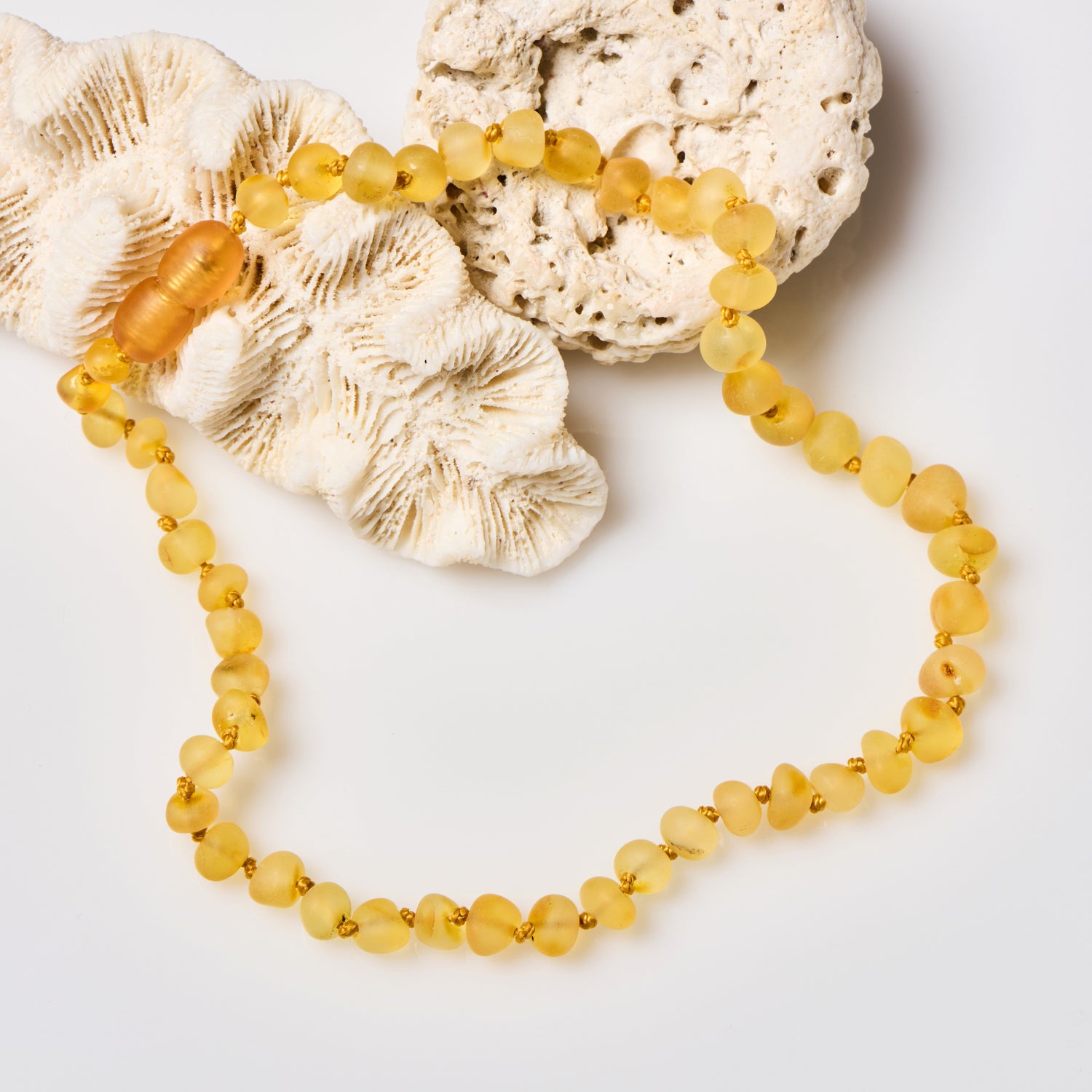Teething can be a frustrating time for both babies and their parents. That is why is important, as a parent, to educate yourself as much as possible about teething and also the wide range of teething remedies at your disposal.
The following are 5 common questions and answers related to teething babies.
What age will my baby start teething?
No two babies are exactly alike. this means that some babies may start teething earlier than others. Some parents may find their babies first tooth appears as early as 3 months old. Other babies may get their first tooth when they one year or possibly even later! In general, however, most parents find that the average age when a baby starts teething is 6 months.
Do teeth grow in a certain order?
As a general rule of thumb, baby's teeth tend to erupt from the gums in pairs. The first teeth to erupt are usually the central incisors, which are the two lower middle teeth; after that, the upper middle teeth usually come in, with the surrounding teeth coming in a few months afterwards. Most babies do not start getting their molars until they are at least one year old, but this can vary from baby to baby.
How long will teething last?
Teething as a whole lasts from the time a baby's first teeth erupt until all of their baby teeth are in; for most babies, teething will stop completely when they are 2 or 3 years old. Teething pain typically occurs during the process of teeth eruption and pain from individual eruptions tends to last for a few days.
How do I know if my baby is teething?
Most babies will show more than one sign of teething. The most notable symptoms that parents should watch for include the following:
- Irritability
- Rejecting food (due to pain)
- Disturbed or broken sleep patterns
- Inflammed gums, which may appear red and swollen
- Sudden excessive drooling
- Strong desire for biting, chewing and sucking
Most parents will notice that these symptoms tend to be worse at night. This is likely due to the fact that it’s easier to distract babies from teething pain during the day, when teething remedies can be given or when the general hustle and bustle of the house keeps babies occupied.
If a child is able to talk, they may start talking about their mouth hurting or express that they don’t want to eat. These are also signs that teething pain is occurring.
How to soothe a teething baby?
There are many different teething remedies and solutions which work to varying degrees of success. The most common solutions that parents use for teething include:
1) Teething Toys; Teething toys designed to help sooth gums through cold, pressure or a combination of the two
2) Gum Massages; gum massages can be given by fingers or by using gum massage gloves which parents can purchase
3) Amber Teething Necklaces; jewelry made with amber beads provides pain relief by reducing inflammation. Make sure you choose 100% Baltic Amber Teething Necklaces and not an imitation!
4) Medication; pain medication can temporarily soothe teething pain
Remember to keep the above information in mind when your baby starts teething. At Powell's Owls we like to recommend all natural teething remedies but if you decide to use medication always consult with your doctor!





